Related Research Articles

In Old Chicago is a 1938 American disaster musical drama film directed by Henry King. The screenplay by Sonya Levien and Lamar Trotti was based on the Niven Busch story, "We the O'Learys". The film is a fictionalized account about the Great Chicago Fire of 1871 and stars Alice Brady as Mrs. O'Leary, the owner of the cow which started the fire, and Tyrone Power and Don Ameche as her sons. It also stars Alice Faye and Andy Devine. At the time of its release, it was one of the most expensive movies ever made.
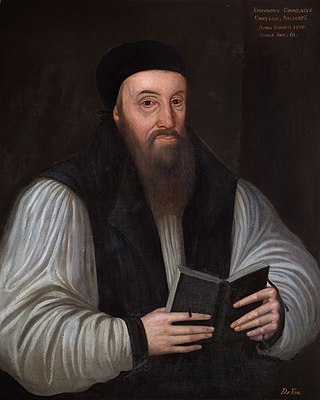
Edmund Grindal was Bishop of London, Archbishop of York, and Archbishop of Canterbury during the reign of Elizabeth I. Though born far from the centres of political and religious power, he had risen rapidly in the church during the reign of Edward VI, culminating in his nomination as Bishop of London. However, the death of the King prevented his taking up the post, and along with other Marian exiles, he was a supporter of Calvinist Puritanism. Grindal sought refuge in continental Europe during the reign of Mary I. Upon Elizabeth's accession, Grindal returned and resumed his rise in the church, culminating in his appointment to the highest office.
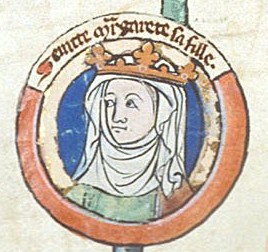
Saint Margaret of Scotland, also known as Margaret of Wessex, was an English princess and a Scottish queen. Margaret was sometimes called "The Pearl of Scotland". Born in the Kingdom of Hungary to the expatriate English prince Edward the Exile, Margaret and her family returned to England in 1057. Following the death of Harold Godwinson at the Battle of Hastings in 1066, her brother Edgar Ætheling was elected as King of England but never crowned. After she and her family fled north, Margaret married Malcolm III of Scotland by the end of 1070.

Mill Hill School is a 13–18 co-educational private, day and boarding school in Mill Hill, London, England that was established in 1807. It is a member of the Headmasters' and Headmistresses' Conference.

Patrick Hamilton was a Scottish churchman and an early Protestant Reformer in Scotland. He travelled to Europe, where he met several of the leading reformed thinkers, before returning to Scotland to preach. He was tried as a heretic by Archbishop James Beaton, found guilty and handed over to secular authorities to be burnt at the stake in St Andrews as Scotland's first martyr of the Reformation.

Patrick Adamson (1537–1592) was a Scottish divine, and Archbishop of St Andrews from 1575.

Dame Louisa Innes Lumsden was a Scottish pioneer of female education. Lumsden was one of the first five students Hitchen College, later Girton College, Cambridge in 1869 and one of the first three women to pass the Tripos exam in 1873. She returned as the first female resident and tutor to Girton in 1873.

Isabella Lilias Trotter was a British artist and a Protestant missionary to Algeria.
Patricia Mary St. John was an English writer who was known as one of the most prolific British Protestant evangelical writers of fiction in the latter part of the 20th century. She worked for much of her life as a Protestant missionary nurse in Morocco. During her time as a house mother at Clarendon School for Girls which was run by her aunt, she wrote Treasures of the Snow and The Tanglewoods' Secret. Her later novels Star of Light and Secret of the Fourth Candle were based on her experiences in Tangiers. She lived for some years until her death in Canley, Coventry in 1993.
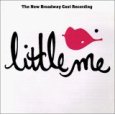
Little Me is a musical written by Neil Simon, with music by Cy Coleman and lyrics by Carolyn Leigh. The original 1962 Broadway production featured Sid Caesar in multiple roles with multiple stage accents, playing all of the heroine's husbands and lovers. One of the better-known songs from the musical is "I've Got Your Number".
Christopher Goodman BD (1520–1603) was an English reforming clergyman and writer. He was a Marian exile, who left England to escape persecution during the counter-reformation in the reign of Queen Mary I of England. He was the author of a work on limits to obedience to rulers, and a contributor to the Geneva Bible. He was a friend of John Knox, and on Mary's death went to Scotland, later returning to England where he failed to conform.
Patrick "Pat" Collinson, was an English historian, known as a writer on the Elizabethan era, particularly Elizabethan Puritanism. He was emeritus Regius Professor of Modern History, University of Cambridge, having occupied the chair from 1988 to 1996. He once described himself as "an early modernist with a prime interest in the history of England in the sixteenth and seventeenth centuries."

Wild Bill Hickok Rides is a 1942 American Western film directed by Ray Enright and starring Constance Bennett, Bruce Cabot and Warren William. Bennett was paid $10,000 for her appearance, a significant drop from what she had recently been earning. Cabot is one of a number of actors to have played Wild Bill Hickok on screen.
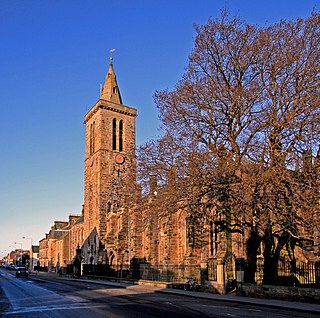
The history of universities in Scotland includes the development of all universities and university colleges in Scotland, between their foundation between the fifteenth century and the present day. Until the fifteenth century, those Scots who wished to attend university had to travel to England, or to the Continent. This situation was transformed by the founding of St John's College, St Andrews in 1418 by Henry Wardlaw, bishop of St. Andrews. St Salvator's College was added to St. Andrews in 1450. The other great bishoprics followed, with the University of Glasgow being founded in 1451 and King's College, Aberdeen in 1495. Initially, these institutions were designed for the training of clerics, but they would increasingly be used by laymen. International contacts helped integrate Scotland into a wider European scholarly world and would be one of the most important ways in which the new ideas of humanism were brought into Scottish intellectual life in the sixteenth century.
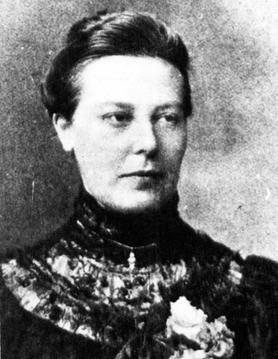
Marion Scott Stevenson was a Scottish missionary with the Church of Scotland Mission in British East Africa (Kenya) from 1907 until 1929.
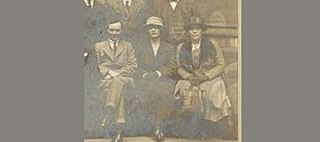
Elizabeth Glendinning Kirkwood Hewat was the first woman to graduate BD and PhD at New College, University of Edinburgh, a missionary, a campaigner for women's equality in the Church of Scotland, and a historian of Scottish missions.

Frances Helen Melville, was a Scottish suffragist, advocate for higher education for women in Scotland, and one of the first women to matriculate at the University of Edinburgh in 1892. She was president of the British Federation of University Women from 1935 to 1942.

Belle Harris Bennett led the struggle for and won laity rights for women in the Methodist Episcopal Church, South. She was the founding president of the Woman's Missionary Council of the Southern Methodist Church. Much of her work including fundraising and organizational efforts to provide higher education for a new professional class of social workers and community organizers in the Southern Methodist Church in the U.S. and abroad. Her carefully collaborative support for African Americans and immigrants was considered radical at that time by Southerners. She was a suffragist and supporter of temperance as well.
Alison Pearson was executed for witchcraft. On being tried in 1588, she confessed to visions of a fairy court.
References
- 1 2 Alnutt, Debbie (10 October 2017). "Belle Patrick: A Kind of Missionary". Calvary Chapel. Calvary Global Network. Retrieved 24 November 2022.
- ↑ Collinson, Patrick (2011). The history of a history man, or, The twentieth century viewed from a safe distance : the memoirs of Patrick Collinson. Woodbridge, Suffolk: Boydell Press. ISBN 9781843836278.